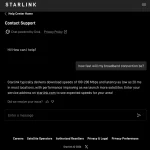Ofcom Propose Tougher UK Consumer Protection Measures
The telecoms regulator has proposed a series of changes to their rules for broadband, phone and mobile providers, which they claim will help to protect consumers from harm. Some of the tweaks include changes to tackle billing accuracy, debt collection, nuisance calls, complaints handling and support for those with disabilities.
All communication providers in the United Kingdom are required to adhere to Ofcom’s General Conditions, which set out the basic standards for how the industry should work and interact with customers. The regulator has now completed an “in-depth review” of these regulatory conditions and as a result they’ve proposed a number of changes, most of which are fairly mild.
The changes are a little tricky to summarise as they run into many different areas, but they’re worth a quick read if you have time. Some of the adjustments also involve replacing, consolidating and simplifying the existing rules, such as by “removing provisions which are no longer needed, or by introducing less prescriptive rules.”
Advertisement
Ofcom’s related consultation (here) will be open for responses until 14th March 2017 and the revised set of rules should then follow “later” in 2017.
Overview of Ofcom’s Main Proposals
Contract requirements
Consumers need protection from potential harm in relation to the contracts they enter into for communications services. They should be provided with certain minimum information before entering into a contract with a communications provider and should have a right to terminate the contract in certain circumstances. We are not proposing any significant policy changes in this area, but we think the condition could be improved by making it clearer and easier to understand.We are also proposing to simplify regulation by revoking the current separate guidance on the meaning of “material detriment” under GC 9.6 in relation to price rises and notification of contract modifications. Instead, we intend to specify Ofcom’s approach to price rises in the condition itself.
Information publication and transparency requirements
Consumers need access to adequate, up to date, comparable information on prices, tariffs and terms and conditions so that they can easily compare the offers and services available in the market and choose the right product for them. We consider that the information publication and transparency requirements set out in the General Conditions should be retained.However, we note that the current requirements are set out in various places across different General Conditions (and annexes) and this can make them difficult for both providers and consumers to navigate and understand. We therefore propose to consolidate the various information publication requirements across the General Conditions into a single condition and to simplify and clarify the requirements where possible, particularly in relation to price transparency.
We are proposing to revoke the separate condition on the publication of quality of service information, as we consider this will no longer be necessary as a result of legislative changes.
Billing requirements
The General Conditions contain rules on the accuracy of bills, the provision of itemised bills and fair debt collection and disconnection procedures for non-payment of bills. We consider that these conditions are still necessary to protect consumers from being overcharged or treated unfairly. We are proposing to re-draft the conditions to make them simpler, and we are also proposing to extend the scope of some of these rules in response to market developments since they were put in place.In particular, in the light of the progressive growth in the take up and importance of broadband services, we are proposing to extend the current rules on billing accuracy (i.e. the “metering and billing scheme”), debt collection and disconnection procedures for non-payment of bills to data services in addition to voice call services.
Complaints handling and access to alternative dispute resolution
When things go wrong, consumers should be treated fairly and have their complaints resolved in an effective and timely manner. Although communications providers are required to adhere to a code of practice on complaints handling and to sign up to an approved alternative dispute resolution scheme, recent experience has shown that our current complaints code of practice is not working as effectively as it should.We are proposing a new code that contains strengthened provisions on the transparency of the complaints process, the provision of information to consumers at different stages of the process, more effective signposting of access to alternative dispute resolution when complaints become deadlocked, and improved record-keeping and monitoring requirements for communications providers.
Meeting the needs of vulnerable consumers and end-users with disabilities
We highlighted in our Digital Communications Strategic Review statement that consumers in vulnerable circumstances often find it particularly difficult to engage in the market. In light of this, we are proposing to introduce a new requirement for communications providers to put in place clear and effective policies for identifying vulnerable consumers to ensure they are treated fairly and appropriately.We also consider that we should update the existing regulatory protections for end-users with disabilities, which currently apply only in relation to voice call services, by extending them so as to cover all public electronic communications services. This reflects the commitment we made in our Digital Communications Strategic Review statement to ensure that the protections which already exist for end-users with disabilities are updated to take account of changes in technology and usage.
Nuisance calls and calling line identification
Calling line identification – which allows someone receiving a call to see the caller’s number – has proved to be increasingly useful tool for consumers to combat the problems of nuisance calls. As such, we believe it is appropriate to maintain the current regulation requiring the provision of calling line identification facilities and to extend regulation to improve the accuracy of the provision and display of the calling party’s telephone number to end-users.We propose to do this by including a new obligation on communications providers to ensure that where calling line identification data is provided, it is valid, diallable and uniquely identifies the caller. We are also proposing to include additional new requirements on communications providers to inform their customers if calling line identification facilities are not available, to provide calling line identification facilities at no additional charge to their customers and to take reasonable steps to identify and block calls on which invalid or non-diallable calling line identification is provided.
Switching and mis-selling
Customers should be protected throughout the process when switching from one provider to another, which includes ensuring that the processes themselves do not create unnecessary difficulties or act as a deterrent for customers to switch provider. The General Conditions already contain detailed rules on switching between retail providers who rely on BT’s or KCOM’s fixed wholesale networks, which were fully implemented at the end of June 2015. We are currently looking in separate projects at, first, reviewing the rules in relation to switching between mobile providers5, and secondly, introducing rules in relation to switching between providers who operate on different platforms.The General Conditions also contain essential provisions on tackling erroneous transfers and prohibitions on mis-selling of fixed (landline and broadband) and mobile communications services, which include both general prohibitions and more specific protections, e.g. to prevent so-called ‘slamming’. Due to the ongoing policy work on switching and the link between the switching and mis-selling provisions, we will review these general conditions further after the conclusion of the separate mobile switching and cross-platform switching projects.
In relation to the provisions on number portability, we are not proposing any significant change to the current rules as part of this review. These rules require communications providers to allow customers who are switching provider to take their number with them. We said in our Digital Communications Strategic Review statement that we would allow industry to reach consensus on how improvements could be made to the way fixed numbers are ported before changing the current rules. We continue to consider that progress is possible and that consequently the onus remains, in the first instance, on industry to reach that consensus.
End.
Mark is a professional technology writer, IT consultant and computer engineer from Dorset (England), he also founded ISPreview in 1999 and enjoys analysing the latest telecoms and broadband developments. Find me on X (Twitter), Mastodon, Facebook, BlueSky, Threads.net and Linkedin.
« Q3 2016 Study – BT and Plusnet Attract Most Broadband Complaints

















































Comments are closed